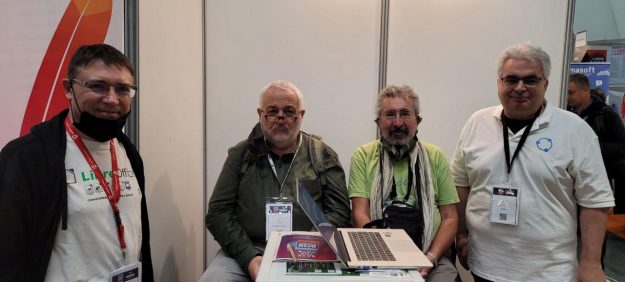The EU and many of its member states are highly supportive of open source software. France takes that to new levels.

The French government showed last week just how all-in they are when it comes to open technologies — especially open source software.
Speaking at the close of the inaugural Open Source Experience conference in Paris, France’s Public Transformation and Civil Service Minister Amélie de Montchalin spelled out the French government’s plans for open source, which included an announcement of the launch of the code.gouv.fr platform, a two-year-in-the-making project that has ambitions to inventory all source code published by public organizations.
During her address, she indicated that the French government hopes its actions will will have as “many States seek to embark” on the road to adopting and promoting the use of open technologies, saying, “We must now build the public action of the new century.”
To paraphrase Walt Kelly: “We have seen the future and it is open source.”
The Repository Platform
What’s being touted in the media as France’s new “software repository” is actually not a repository per se, but a list of links to make it easy for government agencies and outside organizations that deal with the French government, to find software that’s used by the government. One section of the platform, labeled “repositories,” links to “code source repositories opened by [French] public agencies in order to reuse them or contribute to them,” and another, “dependencies” to “libraries frequently used by all the repositories.”
“So far, we only reference accounts on github.com, gitlab.com and local GitLab instances,” the platform says on its “about” page. “If you can help referencing accounts that publish code on other forges (SourceHut, BitBucket, Gogs or Gitea instances, etc.), please see how to contribute.”
Although intended primarily to be an internal tool, but made publicly available due to a French government mandate on openness and transparency, it will likely be a boon to open source developers around the world, which led the UK-based The Register to note: “Helpfully for non-Francophones, the homepage and much of the info is in English.”
By numbers, the repository list is also formidable and quickly growing. When the platform was announced last week it already contained links to 9,067 repositories, and by press time today (about a week after the announcement) that number has grown to include 9,143 repositories and 2,733 dependencies.
To be sure, the repositories listed on code.gouv.fr will mostly be of interest to developers working for commercial software vendors or for enterprises that develop open source in-house, and not for home users looking for apps for Linux desktops. Although repositories for software projects such as Nextcloud and LibreOffice are included, the vast amount of code is related to enterprise level architecture issues and the like.
The French Government and Open Source
The European Union, as well as many of its member states, have long supported open source, with some countries mandating that all software being used by government be open source if possible and that digital interactions with citizens and residents not require the use of proprietary software. France’s latest aspiration, to be an inspiration for other nation states, might lead the way in establishing new standards of government support throughout Europe, and beyond.
In addition to using open source software whenever possible within government, France is also working to release as open source a great deal of the software the government has developed internally or otherwise owns, especially if it’s intended for use by the general public. For example, at Open Source Experience Montchalin announced that the software for France Connect, a digital identification system for government services with more than 30 million users, will be open sourced “in the next few days,” and some French government tax software will also be released under open source licensing soon.
Take our poll:
GitHub or GitLab?
- GitLab (48%, 15 Votes)
- GitHub (26%, 8 Votes)
- Something else (26%, 8 Votes)
Total Voters: 31
Christine Hall has been a journalist since 1971. In 2001, she began writing a weekly consumer computer column and started covering Linux and FOSS in 2002 after making the switch to GNU/Linux. Follow her on Twitter: @BrideOfLinux







